US Imposes Sanctions To Disrupt Hamas Financing
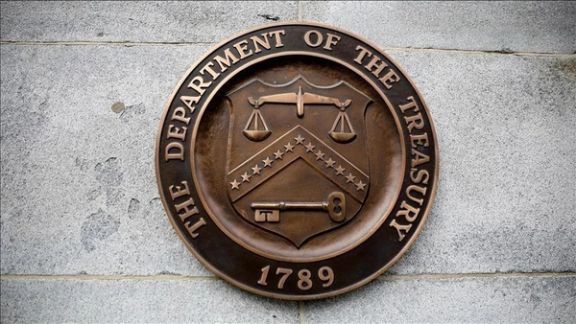
The Biden administration issued sanctions on Wednesday aimed at disrupting Hamas' funding, targeting "a secret Hamas investment portfolio," a financial facilitator tied to Iran.

The Biden administration issued sanctions on Wednesday aimed at disrupting Hamas' funding, targeting "a secret Hamas investment portfolio," a financial facilitator tied to Iran.
The sanctions, imposed under a terrorism-related executive order, targeted nine individuals and one entity based in Gaza and elsewhere including Sudan, Turkey, Algeria, and Qatar, the US Department of Treasury said in a statement.
"The United States is taking swift and decisive action to target Hamas’s financiers and facilitators following its brutal and unconscionable massacre of Israeli civilians, including children," said Treasury Secretary Janet Yellen said.
"We will continue to take all steps necessary to deny Hamas terrorists the ability to raise and use funds to carry out atrocities and terrorize the people of Israel," Yellen added.
Treasury's actions come as US President Joe Biden visited Israel and met with Israeli Prime Minister Benjamin Netanyahu following Hamas' October 7 attack.
Iran is believed to have been providing at least $100 million annually to Hamas and a few hundred millions to Hezbollah in Lebanon.
After the Hamas attack on Israel, top Iranian officials and government media celebrated the event and organized street celebrations, voicing their commitment to continue full support to "resistance front", which is a term referring to militant organization Tehran supports in the region.
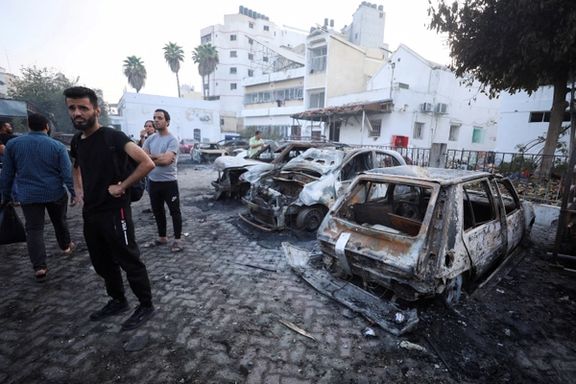
As the hours go by after a hospital was struck in Gaza, questions are being raised as to both the severity of the attack and the number of casualties amid grave concern over the incident.
Within hours of the blast, Palestinian sources were citing hundreds of deaths, numbers as high as 1,000 even being thrown around, for a small 19th century hospital which had a capacity of just 80 beds, according to its website.
Palestinian officials quickly blamed an Israeli air strike for the blast, which it said had killed as many as 500 people. Israel said the blast was caused by a failed rocket launch by the Palestinian Islamic Jihad militant group, which denied blame.
While visiting the region in a bid to quell tensions, US President Joe Biden also spoke quickly to defend Israel, which has been sharing a barrage of intelligence to prove it was not culpable. One such piece of evidence was the intercepted recording of two Hamas operatives on the issue of Islamic Jihad’s failed launch.
Speaking alongside Israeli Prime Minister Benjamin Netanyahu, Biden said: "I was deeply saddened and outraged by the explosion of the hospital in Gaza yesterday, and based on what I've seen, it appears as though it was done by the other team, not you."
But the suggestion that somehow a large hospital building was so severely damaged by a large bomb that caused hundreds of casualties does not correspond to available evidence.
While there are Gazans taking refuge in the likes of the hospital, the parading of dead bodies and casualties has been unusually reserved from the side of Hamas which is usually ready with the body bags and displays of dead bodies. Most images show a crater beside the hospital. Other casualty images have not been confirmed to have come from the hospital.
Footage and images obtained by Reuters from the parking outside the hospital building showed about two dozen destroyed vehicles in its grounds.
Dr Fadel Naim, head of orthopedic surgery, said about 1,000 people were in Al Ahli Arab Hospital on Tuesday morning and more rushed there later in the day after he said the Israeli army had warned residents in the Zeitoun neighbourhood to evacuate their homes.
Dr Ibrahim Al-Naqa claimed more than 3,000 people had sought refuge at the hospital at the time of the strike.
Not even Al Jazeera, the Qatar-funded propaganda machine has been able to show more detailed insight into the alleged atrocity.
If the level of devastation was as serious as has been reported, finding 1,000 bodies underneath rubble would take a great deal of time, not least in Gaza where rescue operations are already underway elsewhere. The rapid flow of numbers again seems worthy of answers, in addition to the true extent of the destruction.
Analysts have been noting the lack of damage to the hospital and its complex, including the chapel and hospital structure which is largely “intact” other than some window damage.
“Update on the chapel at the Ahli Hospital in Gaza, the building lost several of its stained glass windows in the explosion, but otherwise appears to be intact,” wrote @Osinttechnical.
“Full footage from TASS [Russian news agency], no impact craters, interior spaces appear to be intact. Injuries from flying glass appear to have occurred,” he wrote.
Independent intelligence analyst Ronen Solomon from Intellitimes, confirmed that the damage caused by the incident was not consistent with an air strike.
“This picture leaves no doubt, it is a rocket hit and not a bomb. The damage is environmental damage and it does not match the number of deaths reported in Gaza,” he said on X, referring to a Reuters image.
Analyst Oliver Alexander also shared similar insights, referring to the small crater as inconsistent with an airstrike.
“This image [of] what looks to be the only crater that has been visible in any of the currently released footage of the hospital blast,” he wrote on X, suggesting the hospital itself had not been hit directly.
“The failed rocket launch is looking more and more like the culprit in the attack on the hospital,” he wrote.
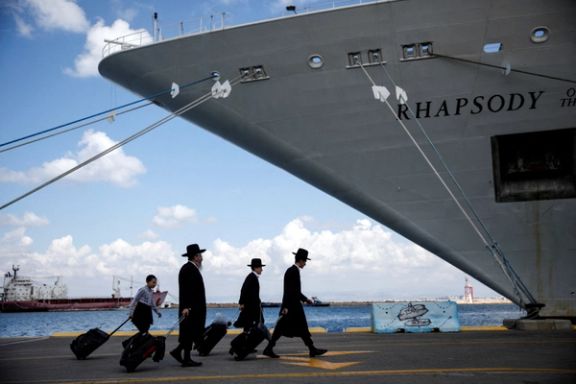
The war between Israel and Hamas has significantly transformed the landscape of TV news and reporting both visually and in terms of content.
This transformation is expected to endure for an extended period before a new visual style and narrative takes its place. Nevertheless, while these changes are noticeable in television broadcasts emanating from the United States, the United Kingdom, and regional countries like Qatar and Turkey, Iran's state-owned television appears to remain unaltered, acting like an island isolated from live broadcasts.
Visually, one of the most striking aspects of TV news reporting is excessive use of aerial shots. These aerial views provide a broader perspective of events on the ground, akin to watching from a divine vantage point, observing the activities of smaller entities on another planet. Aerial shots, once costly and hazardous when captured from helicopters over conflict zones, have become more affordable and accessible through small quadcopters equipped with high-resolution 4K cameras. These videos, which now constitute most of the televised news coverage, tend to emphasize the destructive aspects of the conflict.

We became accustomed to watching graphic and violent scenes on TV after 2011, during the period when ISIS was wreaking havoc in a significant part of the Middle East. However, the destruction witnessed in Gaza used to be filmed from a distance and presented days later.
In terms of content, there is now less control over airing gruesome videos. While user-generated footage of violence against men, women, and children is still shared on social media, broadcasters ensure that such graphic content is not aired on television. Instead, graphic violence is described using words rather than images.
For the first time in television history, we observed a US official, the National Security Agency's coordinator for strategic communication John Kirby, bursting into tears while talking with a CNN news anchor as he discussed the suffering of Israelis and other nationals held hostage by Hamas. This highlights the power of words to evoke emotions and resonate with people.
One of the notable changes in global TV news coverage after the October 7th attack is a shift in narrative that emphasizes the voices on both sides of the conflict and distinguishes between Hamas and ordinary Palestinians who may not endorse the group's actions. However, Iranian TV remains absent from this shift and echoes the regime's perspective, which neither recognizes Israel nor acknowledges Palestinians beyond Hamas members.
Many TV channels around the world, and most markedly the Iranian state-controlled television, have been airing prejudiced coverage of what happened in Israel and Gaza at the price of losing their viewers' trust. That is what prejudiced reporting without covering the views of the other side of the argument does. Prejudiced reporting creates dangerous bi-polar opinions in the society, and erodes trust in the media.
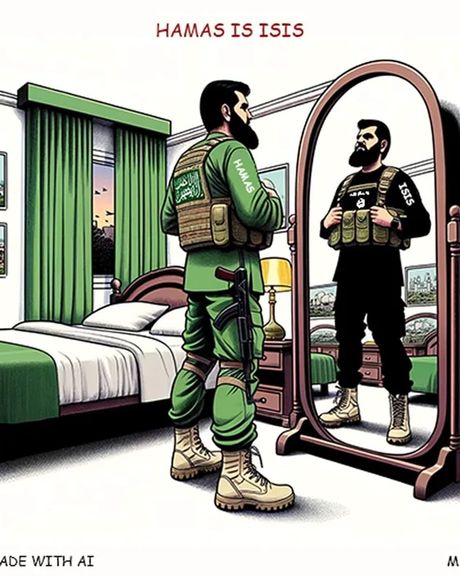
However, it is understandable that there are difficult situations which make impartiality meaningless for the media. Reporting the events during the 2022 protests in Iran, reporters learned that it is absolutely impossible to remain impartial when security forces blind or kill 16-year-old girls and boys by shooting them at point blank range.
US Secretary of Defence Lloyd Austin pointed out this bitter fact for reporters when he said during an October 13 visit to Israel that "This is no time for neutrality and false equivalence."
The issue of impartiality can be the subject of several hours of debates at any journalism and ethics course. In the United Kingdom where the media operates independent of the government and does not take orders from state officials, three cabinet ministers have reportedly been trying to convince the BBC to use the word "terrorist" to describe the atrocity committed by Hamas. Media figures such as the BBC's John Simpson were involved in heated debate with journalists, media outlets and members of the public over the matter. However, a final verdict might take several years.
In Iran, where state-owned television is utilized as a tool for promoting Supreme Leader Ali Khamenei's ideology, and with no independent radio or television, the state TV disseminates biased propaganda in favor of Hamas and fails to differentiate between the group's members and ordinary Palestinians. Iranian television conceals essential facts regarding the initiation of the most recent violence in the region.
Several polls have shown that Iranian state TV offers the least popular channel in the country and only 11 percent of viewers in Iran get their news from the state TV. The other 89 percent turn to stellate TV channels such as Iran International and the BBC for news in Persian.
The Iranian TV never tells its viewers that not all Palestinians are Arab. Most Iranian viewers do not know that there are also Jewish and Christian Palestinians, and that the Muslims there are Sunnis. The Iranian TV does not tell its viewers that Palestinians generally supported Iraq's Saddam Hussain in his war against Iran and that Hamas was not Iran's ally when Iranian forces were active in Syria after 2011.
Iranian TV lives in a parallel world and offers often fake and fabricated news to a tiny segment of the regime supporters. It keeps Iranians in the dark about where their real interests are and who controls them and why and how. It wants Iranian viewers to live in an imaginary world of illusions.
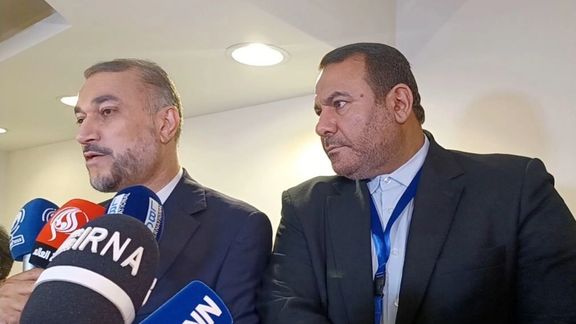
Iran says members of the Organization of Islamic Cooperation (OIC) should impose an oil embargo and other sanctions on Israel and expel all Israeli ambassadors.
Iranian Foreign Minister Hossein Amir-Abdollahian made the remarks Wednesday on the sidelines of the OIC’s urgent open-ended extraordinary meeting to discuss the escalating Israeli-Palestinian conflict. The meeting is taking place in the Saudi city of Jeddah to after a blast at a Gaza hospital late on Tuesday killed large numbers of Palestinians.
"The foreign minister calls for an immediate and complete embargo on Israel by Islamic countries, including oil sanctions, in addition to expelling Israeli ambassadors if relations with the Zionist regime have been established," the foreign ministry said in a statement.
Amirabdollahian also called for the formation of a team of Islamic lawyers to document potential war crimes committed by Israel in Gaza.
Prior to the blast at the Gaza hospital on Tuesday, health authorities in Gaza said at least 3,000 people had died during Israel's 11-day bombardment that began after a Hamas October 7 rampage on southern Israeli communities in which 1,300 people were killed and around 200 were taken into Gaza as hostages.
Iran’s ruler Ali Khamenei downplayed the killing of Israeli civilians in a speech on Tuesday, saying they were armed, and that Israel has killed many more Palestinians.
The Islamic Republic, led by the 83-year-old authoritarian ruler, has been financially and militarily supporting Hamas, the Lebanese Hezbollah and other militant organization designated as terrorist groups by several Western countries. The government ordered street celebration and vowed to continue support for Hamas.
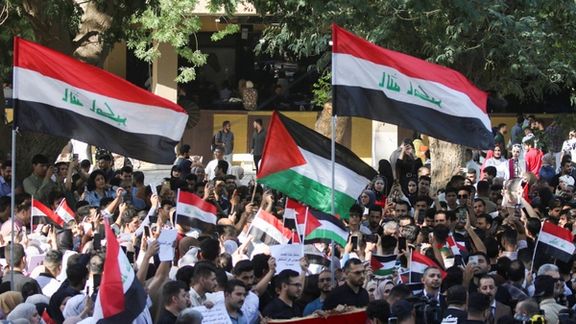
Amid threats, the US military thwarted an attack targeting its forces in Iraq early on Wednesday, intercepting two drones, Reuters quoted US officials as saying.
The attempted attack was the first in more than a year and comes after Iran’s proxies in Iraq made threats following the Israeli bombing of Gaza in the wake of the October 7 Hamas attack.
The officials, who spoke to Reuters on condition of anonymity, declined to say who was suspected of the attack but Washington is on heightened alert for activity by Iran-backed groups amid soaring tension in the region over the Israel-Hamas war.
Last week, Iraqi armed groups controlled by Iran threatened to target US interests with missiles and drones if Washington intervened to support Israel's conflict with Hamas in Gaza.
The one-way attack drones were intercepted as they attempted to strike Iraq's al Asad air base, which hosts American troops, the officials said.
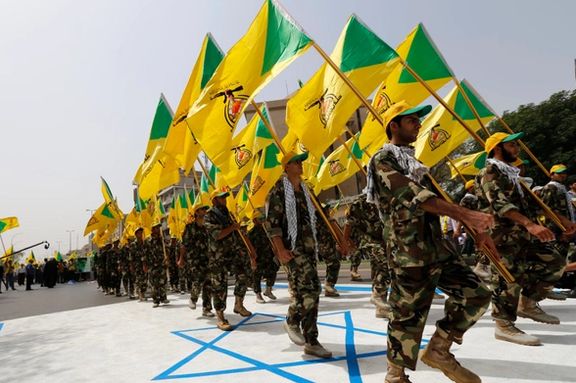
The attack came hours after a strike on a Gaza hospital killed hundreds of Palestinians, raising the stakes for US President Joe Biden as he flies to Israel on Wednesday to signal support for its war against Hamas.
Israel blamed the blast at Al-Ahli al-Arabi hospital on a failed rocket launch by the Palestinian Islamic Jihad group, which denied responsibility.
Palestinian officials said an Israeli air strike hit the hospital, with the Palestinian Authority's health minister accusing Israel of causing a "massacre".
In Iraq, tension over the war in Gaza had already been high. Its top Shi'ite cleric, Grand Ayatollah Ali al-Sistani, last week condemned Israel and called on the world to stand up to the "terrible brutality" in Gaza.
Leaders of Iraqi armed groups blamed Israel for the attack on the hospital. Some of them condemned the US for supporting Israel.
Kataib Hezbollah, a powerful armed faction with close ties to Iran, said that the United States, which is supporting Israel in "killing innocent people", should leave Iraq.
"These evil people must leave the country, otherwise they will taste the fire of hell in this world before the afterlife," the group said in a statement last night.
Iraqi politician Hadi Al-Amiri, leader of the political and military group the Badr Organization, which is close to Iran, also blamed Israel for the attack on the hospital and described it as "the massacre of the era, which can only be classified as a war crime" and condemned the US and Western countries for supporting Israel.
We “will not hesitate to consider America and the West as partners in this hideous massacre”, he said in a statement on Tuesday night. Last week he threatened to target US interests if Washington intervened to support Israel.
The United States currently has 2,500 troops in Iraq - and an additional 900 in neighboring Syria - on a mission to advise and assist local forces in combating Islamic State, which in 2014 seized swathes of territory in both countries.
In past years, Iranian-backed militias in Iraq regularly targeted US forces in Iraq and the U.S. embassy in Baghdad with rockets, though such attacks have abated under a truce in place since last year, as Iraq enjoys a period of relative calm.
US officials have accused Kataib Hezbollah of previous attacks on US interests. The group has denied the claims.
Dozens of members of the Popular Mobilization Forces (PMF), the state paramilitary organization that contains many Iran-backed factions, took to the streets on Tuesday to condemn the hospital attack.
Demonstrators chanted anti-US and anti-Israeli slogans and said they wanted to storm the US embassy for its support of Israel.
A Reuters witness said that some of the protesters tried to cross the bridge that leads to the fortified Green Zone - home to the US embassy and other missions in Baghdad - but were blocked by the security forces.
Reporting by Reuters
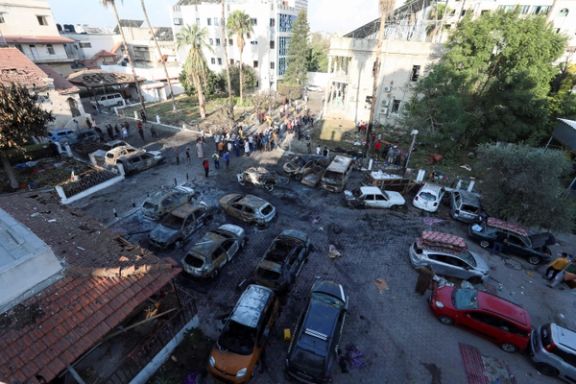
The United Arab Emirates was among the first states to name Israel as responsible for the bombing of a Gaza hospital as the threat of Iranian action looms larger.
Iran has been fiercely critical of states such as the UAE and Bahrain for normalizing relations with Israel, in the wake of the US-brokered Abraham Accords in 2020 and the UAE has trodden a fine line to keep the balance between its new and old friends.
The UAE reinstated diplomatic relations with Iran last year, following tensions due to the war in Yemen where Iran’s proxy, the Houthis, was at war with the UAE and Saudi-backed Yemeni government.
The fine line the country, seen as the Middle East’s Switzerland, walks became was no less apparent as its foreign ministry announced just hours after the attack on the Al Ali Baptist Hospital in Gaza announced its “strong condemnation” of the attack, naming Israel as the perpetrator.
Meanwhile, in Tehran, protests were being prepared with the regime’s leaders organizing free food and drink for those coming to the streets in support of Gaza and “down with Israel”, an easy sell while the people of Iran are being pushed more rapidly below the poverty line.
The regime grows each day more vocal about pulling the cord on unleashing a region wide war with its proxies on each side of Israel, in Gaza, Lebanon and Syria.
Fanning the unrest President Ebrahim Raisi said: “The flames of US-Israeli bombs dropped tonight on innocent Palestinians being treated for injuries in Gaza's hospital will soon engulf the Zionists. No free human being’s silence is permissible in the face of such a war crime. Iran, as a part of the Islamic nation, is grieving.”
Israel claims the tragedy was a misfired rocket from Gaza-based Islamic Jihad, the resulting tragedy due to the hospital having been hiding massive amounts of munitions and explosives.
Earlier this week, fake news spread across social networks claiming four Israelis had been murdered in a terror attack in Dubai. The emirate’s media office came out with an unprecedentedly fast denial of the incident calling it fake news, a crime in the Persian Gulf state.
With hundreds of thousands of Israeli tourists flooding into the country since the diplomatic ties opened and trade (excluding software) between Israel and the UAE in the first eight months of 2023, reaching $2.112 billion, up from $1.623 billion in 2022, there is a lot at stake.
The fake news which had already gone globally viral suggested the hand of Iranian cyber tactics to destabilize the country’s growing Israel and Jewish ties. Earlier this year, Abu Dhabi opened the region’s first synagogue in over 100 years at the Abrahamic House, a complex housing a mosque, church and synagogue side by side in a symbol of the togetherness of the region’s ancient religions.
Commentators have decried the Arab world’s silence over the atrocities caused by Hamas’ invasion of Israel on October 7, when the terror group massacred hundreds of civilians and took at least 200 more hostage.
Hussain Abdul-Hussain, research fellow at the Foundation for the Defense of Democracy, said: “Had Arab governments and protesters shown similar outrage against Hamas and demanded its end after October 7, I don't think Israel would have gone to war in the first place.”
Others saw through the potential political gain the hospital attack would garner, succeeding in Jordan’s canceling of meetings with President Joe Biden. Shahram Kholdi, a Middle East specialist, wrote: “Islamic Jihad Of Palestine’s long record of crimes makes them the prime suspect in the rocket attack on Gaza Baptist Hospital with the clear intention of sabotaging [the] Amman Summit between Biden and Arab leaders.” The summit was supposed to unite the leaders of the UAE, Jordan, Palestine and Egypt.
Furthermore, alongside providing tens of millions in aid to Gaza during the ongoing conflict, the UAE Red Crescent has utilized its substantial resources, which represent the country's most influential diplomatic asset. This organization has established 26 donation centers, and volunteers have joined in large numbers, underlining the continued surge of solidarity with the Palestinian cause, even in the face of the agreements.
Even at the level of the country’s royals, the allegiance is clear, putting the UAE in a challenging position each time conflict breaks out between Israel and the enemies on its borders.
Olympian Meytha Al Maktoum, part of the Dubai ruling family, has been actively supporting Gaza on social media this week, while in Sharjah, the wife of its ruler, Sheikha Jawaher Al Qassimi, has also been actively sharing posts in support of the Palestinians in Gaza. There has been no condemnation of terror group Hamas.